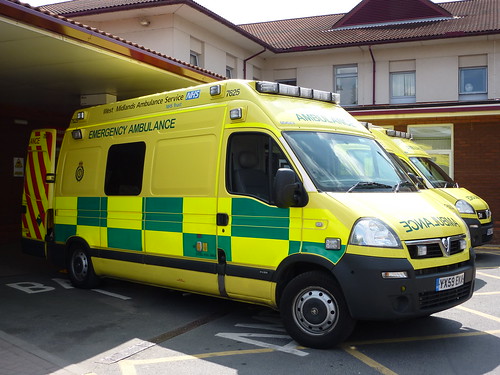On 1 February, the paper published an article with as loaded a headline as you can get. 'Ambulance-chasers push NHS costs bill to £200m', proclaimed this piece. It went on to cite figures released by the NHS Litigation Authority, a not-for-profit part of the NHS which manages negligence and other claims against the NHS in England on behalf of its member organisations.
Inflammatory accusations
The Telegraph seemed very happy to give some oxygen to the Authority's claims - perhaps because the chance to wield the 'ambulance-chaser' tag in connection with the legal profession was too good to resist. It happily repeated any number of inflammatory accusations - the kind of thing guaranteed to provoke readers over their Saturday breakfasts.
"Lawyers involved in clinical negligence cases against the NHS are attempting to charge the health service up to £1,400 an hour in costs, leaving taxpayers with a bill of nearly £200 million a year," was one such gem.
 The Telegraph added that "compensation lawyers are claiming costs and fees worth up to 10 times more than the damages awarded to the patients that they represent." There followed an example which could not but infuriate: "one firm tried to claim £37,000 in costs for a case where the damages paid to the patient were £3,000. The bill was reduced to £3,000 following court action." Then there was yet another: "a London-based firm attempted to charge £1,440 an hour, with total costs of more than £100,000. It eventually accepted an offer of £30,000 in costs."
The Telegraph added that "compensation lawyers are claiming costs and fees worth up to 10 times more than the damages awarded to the patients that they represent." There followed an example which could not but infuriate: "one firm tried to claim £37,000 in costs for a case where the damages paid to the patient were £3,000. The bill was reduced to £3,000 following court action." Then there was yet another: "a London-based firm attempted to charge £1,440 an hour, with total costs of more than £100,000. It eventually accepted an offer of £30,000 in costs."It's all quite scurrilous - well, so it seems. After all, how can it be right that claimant solicitors pocketed £196m in fees for claims against the NHS last year? At a time when, as the newspaper put it, "the NHS is facing severe financial pressures."
The NHS Litigation Authority singled out certain law firms which it believes are particularly guilty of excessive charging. No wonder, for Catherine Dixon, its head, believes that some firms are trying to maximise their profit at the NHS' expense. She argues that the NHS could save £69 million each year if the cost of lawyers representing patients was capped at the same level as the cost of the health service's lawyers, plus an extra 20 per cent.
"It seems to me that it is out of kilter with the level of damages they are seeking to recover from their clients and defence costs," she told the paper.
"I don't think that charging significantly higher costs is appropriate, particularly against a body like the NHS which is looking after the health of the nation.
"Access to justice is important, and it is right that claimants' solicitors are paid a fair amount for the work they do. But I would rather see the excessive amounts we're spending on costs going into patient care."
Maxey on the money
The Authority's claims were also aired in this piece in Claims Magazine. At least this time - in contrast to the way the Telegraph covered the story - an opposing view was given. This came from James Maxey of Express Solicitors, who said: "I used to take the angry ambulance chaser jokes in good humour but no longer. I've spent too much time with the families and victims of clinical negligence, some of them with lasting disabilities that words like 'devastating' just cannot convey."
Mr Maxey is right. He also roundly and rightly rejected Ms Dixon's argument that personal injury claimant lawyers were "front-loading" costs by hiring expert witnesses and conducting extensive investigations for what she believed were relatively low value claims. As Mr Maxey says, due diligence is properly required before any solicitor takes on any claim, as is the appointment of a medical expert. It is absurd to suggest that personal injury claims can be conducted in the absence of this.
And beyond this, there is a single obvious and damning point. If the NHS treated its patients better, either by not being negligent in the first place or by admitting liability early rather than digging its heels in and contesting meritorious claims, its legal bill would be an awful lot smaller.
No comments:
Post a Comment